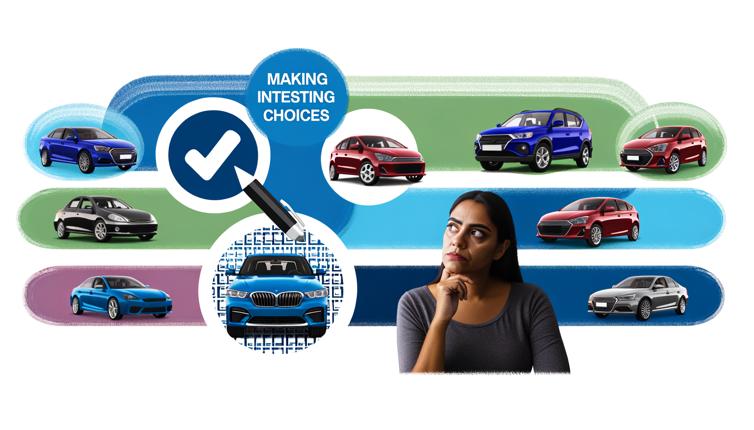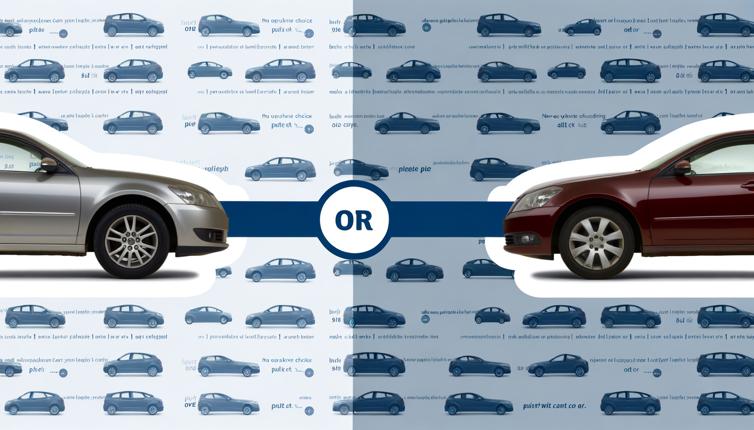1. Budget
Before you start looking at cars, it's important to determine your budget. Consider how much you can afford to spend on a car, including not only the purchase price but also ongoing costs such as insurance, fuel, and maintenance.,Be realistic about your budget and don't forget to leave room for unexpected expenses. It's always better to buy a car that you can comfortably afford rather than stretching yourself too thin financially.
2. Needs and Lifestyle
Think about your needs and lifestyle when choosing a car. Consider factors such as the size of your family, the type of roads you will be driving on, and whether you need extra storage space for hobbies or work.,If you have a long commute, a fuel-efficient car may be a priority. If you frequently transport large items, a car with a spacious trunk or folding seats might be necessary. Assessing your needs will help you narrow down your options.
3. Research
Take the time to research different car models and their features. Read reviews from experts and owners to get an idea of the pros and cons of each model. Consider factors such as fuel efficiency, safety ratings, and reliability.,Weigh the benefits of new and used cars. New cars may come with warranties and the latest technology, but they can also be more expensive. Used cars may be more affordable but may require more maintenance.,Researching different cars will give you the information you need to make an educated decision.
4. Test Drive
A test drive is essential before making a final decision. Schedule test drives for the cars you are interested in and pay attention to how they feel on the road.,Consider factors such as comfort, visibility, and ease of handling. Test the car on different types of roads to get a better sense of its performance.,Take your time during the test drive and ask the salesperson any questions you may have. It's important to feel confident in your choice before making a purchase.
5. Financing Options
Explore your financing options before visiting a dealership. Research different lenders and compare interest rates and terms. Get pre-approved for a loan so you know how much you can afford to borrow.,Consider whether leasing or buying is the right choice for you. Leasing allows you to drive a new car for a lower monthly payment, but you won't own the car at the end of the lease. Buying, on the other hand, gives you ownership but may require a larger down payment and higher monthly payments.,Understanding your financing options will help you negotiate a better deal and stay within your budget.
6. Insurance Costs
Don't forget to consider insurance costs when buying a car. Insurance premiums can vary greatly depending on the make and model of the car, as well as factors such as your age, location, and driving record.,Get insurance quotes for the cars you are considering to get an idea of the potential costs. Factor these costs into your budget to ensure you can afford both the car and the insurance.
7. Resale Value
Resale value should also be taken into account when buying a car. While it may not seem important at the time of purchase, it can have a significant impact on the overall cost of ownership.,Research the resale value of the cars you are considering. Some brands and models hold their value better than others, which can save you money in the long run.,Consider factors such as the reputation of the brand, the demand for the model, and the predicted depreciation.
8. Safety Features
Safety should be a top priority when buying a car. Look for cars with advanced safety features such as anti-lock brakes, traction control, stability control, and airbags.,Check the safety ratings of the cars you are considering. Organizations such as the National Highway Traffic Safety Administration (NHTSA) and the Insurance Institute for Highway Safety (IIHS) rate the safety of vehicles based on crash tests and other criteria.,Choosing a car with high safety ratings can give you peace of mind on the road.
9. Maintenance and Repair Costs
Consider the long-term costs of owning a car, including maintenance and repair expenses. Some cars are more expensive to maintain and repair than others.,Research the average maintenance and repair costs for the cars you are considering. Factors such as the availability of parts and the complexity of the car's systems can impact these costs.,Choosing a car with lower maintenance and repair costs can save you money in the long run.
10. Resale Value
Finally, consider the resale value of the car. While it may not seem important at the time of purchase, it can have a significant impact on the overall cost of ownership.,Research the resale value of the cars you are considering. Some brands and models hold their value better than others, which can save you money in the long run.,Consider factors such as the reputation of the brand, the demand for the model, and the predicted depreciation.
Conclusion
By considering these top 10 things when buying a car, you can make a more informed decision and find a car that meets your needs and budget. Remember to take your time, do your research, and test drive different cars to ensure you choose the right one for you.









